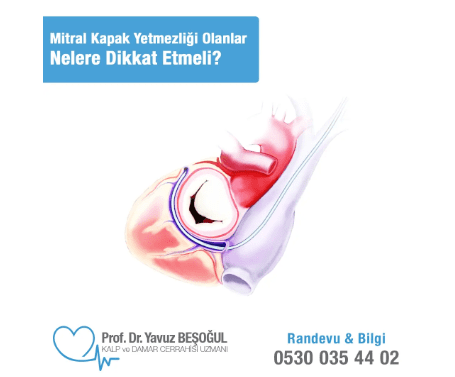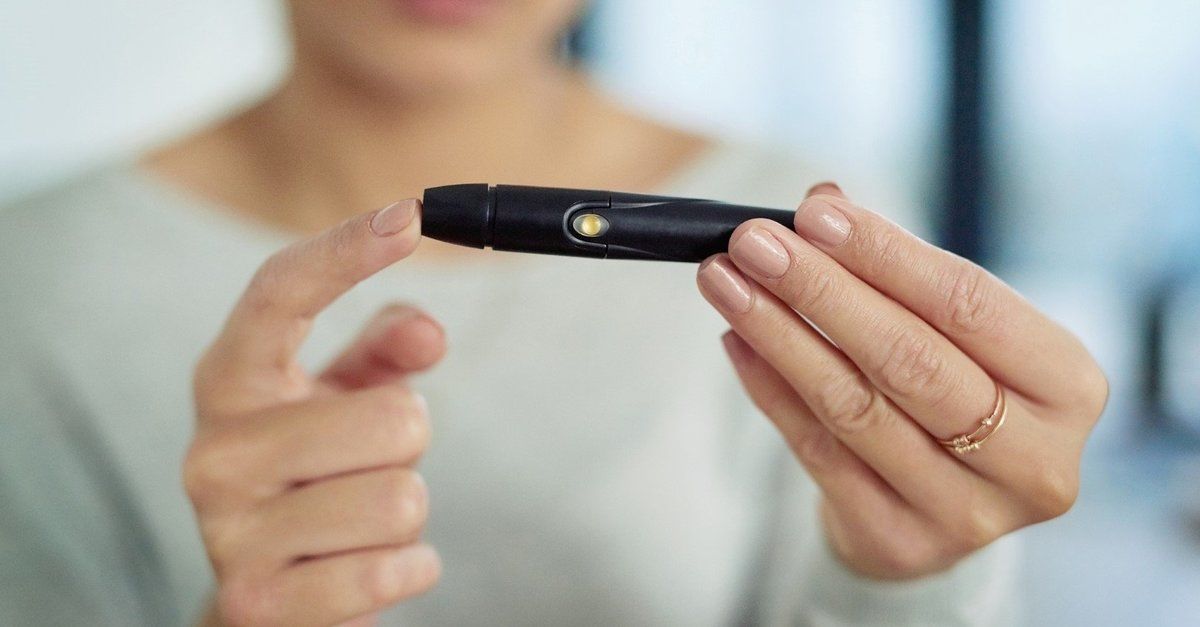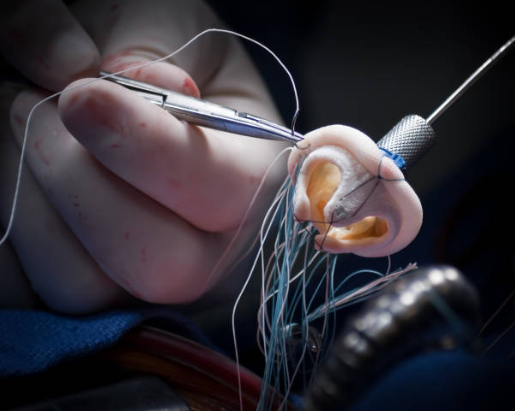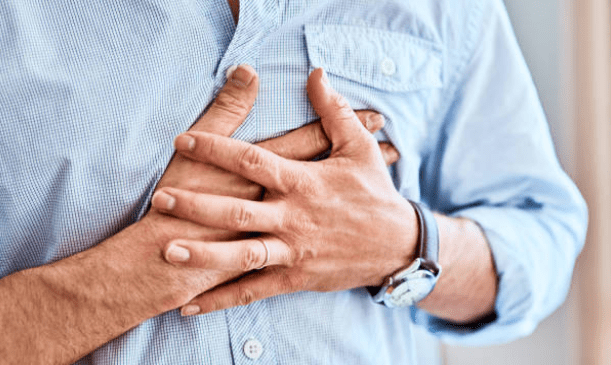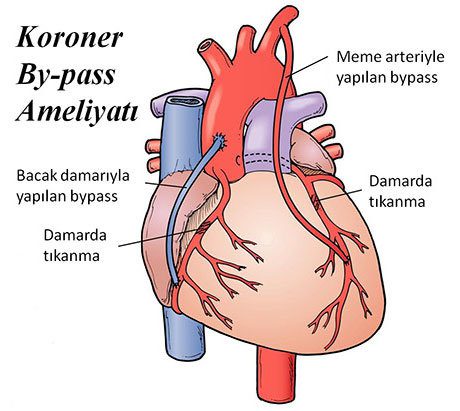Heart attack is among the top causes of death in the world. Especially if the mother or father has had a genetic heart attack, has had surgery before, or has a blockage in the heart vessels, the person must have himself examined. The first way to prevent this is to be examined when suspected. For this purpose, a stress test can be performed, as well as examinations that show the nourished areas of the heart, mostly in nuclear medicine today....
Prof. Dr. Yavuz BeşoğulAll Articles
Cardiovascular Surgery Specialist
AllFrom the pressGeneral
Venöz Tromboz
Venöz Tromboz Nedir? Venöz tromboz, toplardamarların içinde pıhtı oluşması durumudur ve bu pıhtı kan akışını engelleyebilir. Genellikle bacaklarda meydana gelir ve derin ven trombozu (DVT) olarak adlandırılır. Bu durum, toplardamarların kanı kalbe taşımasını zorlaştırır ve pıhtının akciğerlere giderek ciddi bir durum olan pulmoner emboliye neden olma riski vardır. Bu rahatsızlık, hareketsiz bir yaşam tarzı, uzun...
VSD Ameliyatı
VSD Ameliyatı Nedir? VSD ameliyatı, iki karıncık arasındaki delikleri kapatmak için yapılır. Kalbin sağ ve sol karıncıkları arasındaki duvarda bulunan bu delik, kanın içinde yanlış yönde akmasına yol açabilir. VSD, doğuştan gelen bir kalp rahatsızlığıdır ve tedavi edilmediğinde kalbin daha fazla çalışmasına, solunum sorunlarına ve kalp yetmezliğine neden olabilir. Ameliyatın amacı, kanın yanlış yönde akmasını önlemek...
Kılcal Damar Tedavisi
Kılcal Damar Tedavisi Nedir? Kılcal damar tedavisi, cilt yüzeyine yakın olan ince kılcal damarların görünümünü azaltmak veya tamamen ortadan kaldırmak için yapılan bir işlemdir. Bu damarlar, özellikle yüz, bacaklar ve burunda belirginleşir ve çoğu kişi için estetik bir rahatsızlık oluşturabilir. Bu damarların belirginleşmesi genellikle yaşlanma, genetik değişiklikler, hormonal değişiklikler, güneşe maruz kalma ve çeşitli yaşam...
What Should Those Having Heart Valve Surgery Pay Attention to? When heart valve surgery is performed with a few centimeter incisions using the minimally invasive surgical method, the postoperative recovery process is faster. There are fewer restrictions on patients' daily lives after minimally invasive surgery, where the risk of complications and bleeding is lower compared to open surgery. Heart valve repair or heart valve replacement...
Those with mitral valve insufficiency should have their blood pressure, pulse and weight checked regularly. However, heart failure patients should use their medications regularly and consult a doctor without delay in cases such as rapid weight gain, fatigue, loss of appetite and edema in the feet or legs. Symptoms of Mitral Valve Insufficiency: Shortness of breath, chest pain, rhythm disturbances, easy fatigue, weakness of unknown cause...
Bicuspid aortic valve has 2 leaves instead of 3 leaves. The first effect of bicuspid aortic valve disease is calcification. Arthritis can develop rapidly between the ages of 30 and 50. As a result of calcification, the valves may soften and become deformed, leaking backwards and causing heart enlargement. Therefore, intervention must be made without wasting time. Bicuspid Aortic Valve Repair The person's...
Diabetes can trigger cardiovascular diseases in the long term, leading to heart failure, coronary artery diseases or peripheral artery diseases. According to research, these problems are more common in diabetic patients than in non-diabetic individuals. Diabetes can cause accelerated vascular occlusion and clotting. Patients with diabetes use tobacco, have high body mass indexes and...
Today, varicose vein treatment is performed successfully without general anesthesia and without the use of surgical methods. It is possible to get rid of varicose veins painlessly with the venablock method, which is one of the most successful techniques in the treatment of varicose veins. What is Venablock? In the Venablock method, varicose veins are entered using ultrasonography and needles. Biological adhesives are applied into the vein with a catheter, ensuring that the veins stick together....
Heart valve diseases are among the most common heart diseases. Treatment methods for heart valve stenosis and insufficiency diseases that occur in the mitral valve, aortic valve, tricuspid valve and pulmonary valve in the heart may vary depending on the condition of the disease, such as heart valve repair and heart valve replacement. Heart valve repair surgeries are different from heart valve replacement surgeries...
Arrhythmia can be defined as irregularities in heartbeat, such as bracardia or tachycardia. While a slow heartbeat is called bracardia; If it is fast, it is called tachycardia. However, the heartbeat is irregular, other than slow or fast; Pauses during heartbeat are also considered as arrhythmia. What are the symptoms of arrhythmia? ECG to diagnose arrhythmia...
Coronary bypass surgery directs blood to a section of a blocked or partially blocked artery in your heart to improve blood flow to your heart muscle. The procedure involves taking a healthy blood vessel from your leg, arm, or chest and connecting it across blocked arteries in your heart. Although coronary bypass surgery does not cure heart disease that causes blockages (atherosclerosis or coronary artery disease), it...
Performing heart surgery with minimal incisions means performing both heart valve replacement and coronary bypass surgeries while the heart is working, by entering from the sides of the chest, between the ribs, without disrupting the integrity of the chest wall, that is, without performing a splitting of the chest in the middle, called sternotomy. Each of them has different techniques. For heart valves, heart surgery is performed with minimal incisions under the right armpit. In coronary bypass surgery, the number of vessels...



